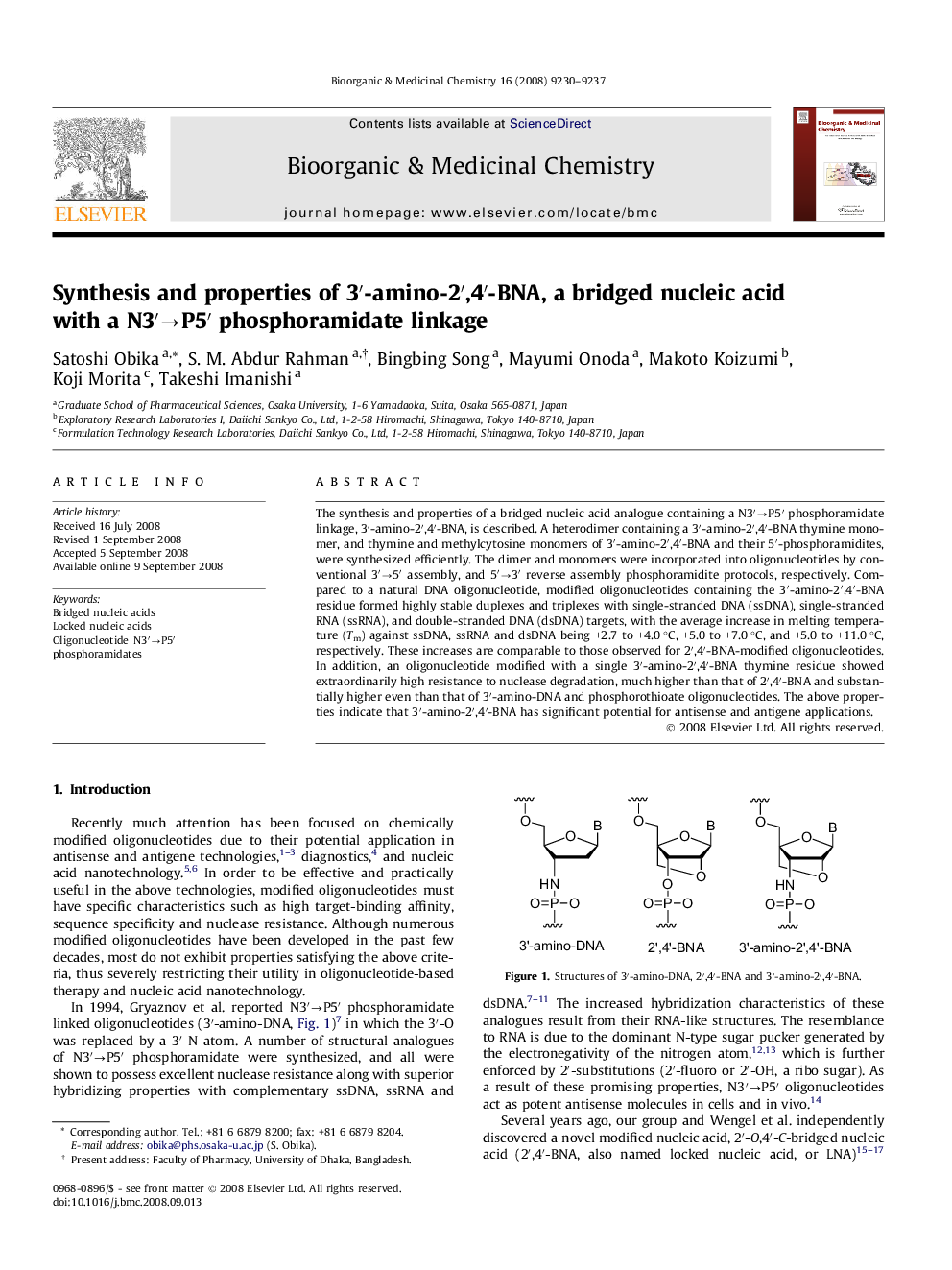| کد مقاله | کد نشریه | سال انتشار | مقاله انگلیسی | نسخه تمام متن |
|---|---|---|---|---|
| 1360868 | 981451 | 2008 | 8 صفحه PDF | دانلود رایگان |

The synthesis and properties of a bridged nucleic acid analogue containing a N3′→P5′ phosphoramidate linkage, 3′-amino-2′,4′-BNA, is described. A heterodimer containing a 3′-amino-2′,4′-BNA thymine monomer, and thymine and methylcytosine monomers of 3′-amino-2′,4′-BNA and their 5′-phosphoramidites, were synthesized efficiently. The dimer and monomers were incorporated into oligonucleotides by conventional 3′→5′ assembly, and 5′→3′ reverse assembly phosphoramidite protocols, respectively. Compared to a natural DNA oligonucleotide, modified oligonucleotides containing the 3′-amino-2′,4′-BNA residue formed highly stable duplexes and triplexes with single-stranded DNA (ssDNA), single-stranded RNA (ssRNA), and double-stranded DNA (dsDNA) targets, with the average increase in melting temperature (Tm) against ssDNA, ssRNA and dsDNA being +2.7 to +4.0 °C, +5.0 to +7.0 °C, and +5.0 to +11.0 °C, respectively. These increases are comparable to those observed for 2′,4′-BNA-modified oligonucleotides. In addition, an oligonucleotide modified with a single 3′-amino-2′,4′-BNA thymine residue showed extraordinarily high resistance to nuclease degradation, much higher than that of 2′,4′-BNA and substantially higher even than that of 3′-amino-DNA and phosphorothioate oligonucleotides. The above properties indicate that 3′-amino-2′,4′-BNA has significant potential for antisense and antigene applications.
Figure optionsDownload as PowerPoint slide
Journal: Bioorganic & Medicinal Chemistry - Volume 16, Issue 20, 15 October 2008, Pages 9230–9237